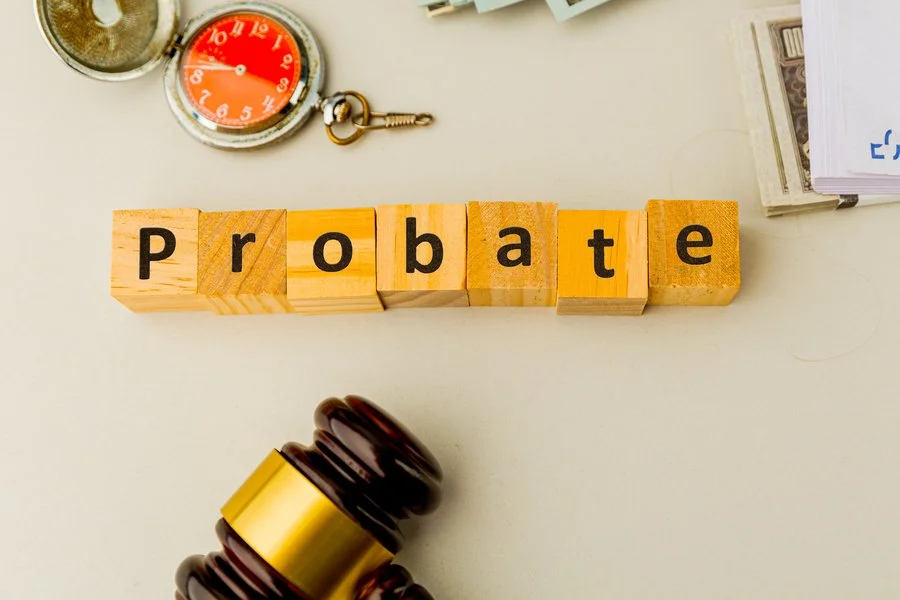Probate – What it is and How to Avoid it
At Wakefield Law, we work daily with clients on the subject of estate planning. When handling the subject of estate planning in Virginia, one of the most crucial subjects is mitigation or even complete avoidance of the probate process. While many people think that writing a will is enough to ensure their estate is smoothly distributed, it’s only one part of the equation. We always say a Will, no matter how well written, is your ticket to probate – it’s the instruction manual for probate.
Probate, the legal process of settling an estate after someone passes away, can be lengthy, expensive, and public. By taking proactive steps to avoid probate, you can save your heirs time, money, and stress.
Here’s why avoiding probate in Virginia is so important, along with strategies to help you achieve this goal.
What Is Probate?
Probate is the court-supervised process of administering a deceased person’s estate. This includes verifying the validity of the will (if there is one), inventorying the estate’s assets, paying debts and taxes, and distributing the remaining assets to beneficiaries. If no will exists, the estate is distributed according to Virginia’s intestacy laws.
The process is typically handled by the executor named in the will, or if no will exists, by a court-appointed administrator. While probate serves the important purpose of ensuring that an estate is properly managed, it can be time-consuming and costly. In Virginia, probate takes at a minimum six months and one day, but it can often last years, depending on the size and complexity of the estate. Court costs, attorney fees, and executor compensation can also chip away at the estate’s value.
Why Should You Avoid Probate?
Time-Consuming Process: Probate can be a lengthy process, especially if disputes or complications arise. During probate, your beneficiaries may have to wait months or even years before receiving their inheritance. This is especially problematic when there are minor children – guardians of minor children will have to wait until the court releases funds before they can access assets necessary for care.
Costs: Probate expenses in Virginia can include court fees, attorney fees, and executor fees. These costs reduce the amount that your beneficiaries will receive. Depending on the size of the estate, probate can cost anywhere from 3% to 7% of the total estate value.
Lack of Privacy: Probate proceedings are a matter of public record, which means that anyone can access details about your estate. This includes information about your assets, debts, and who is set to inherit what. For families who prefer to keep their financial matters private, probate can be an unwanted intrusion.
Potential for Disputes: The probate process opens the door to legal challenges, such as will contests or creditor claims. This can create conflicts between family members and increase the overall cost and length of the probate process.
Stress on Loved Ones: Probate can be a confusing and emotionally taxing process for loved ones who are already grieving. By taking steps to avoid probate, you can simplify the process for your family and reduce the stress they face during an already difficult time.
How to Avoid Probate in Virginia
While probate is often required when an estate is being administered, there are several strategies you can employ to bypass it altogether.
Living Trusts: One of the most effective ways to avoid probate is by creating a revocable living trust. When you transfer your assets into a trust, you no longer "own" them in your individual capacity. Upon your death, the assets in the trust are distributed according to the trust’s terms, without the need for probate. The key benefit of a living trust is that it allows your estate to be managed privately, bypassing the public probate process.
Joint Ownership with Rights of Survivorship: In Virginia, assets that are owned jointly with rights of survivorship automatically transfer to the surviving owner upon your death. This type of joint ownership is common with real estate, bank accounts, and investment accounts. Since the transfer happens by operation of law, these assets do not need to go through probate.
Beneficiary Designations: Certain assets, such as life insurance policies, retirement accounts, and payable-on-death (POD) or transfer-on-death (TOD) accounts, allow you to name beneficiaries directly. When you pass away, these assets go directly to your beneficiaries without going through probate. It’s important to review and update beneficiary designations regularly, especially after major life events such as marriage, divorce, or the birth of a child.
Small Estate Affidavit: In Virginia, if the value of the estate is less than $50,000 and there is no real estate involved, you can bypass the formal probate process using a small estate affidavit. This allows heirs to claim certain assets without having to go through full probate proceedings.
Gifting During Lifetime: Another strategy is to reduce the size of your estate by gifting assets to your beneficiaries while you’re still alive. Make sure you work with your accountant before doing this because there can be profound unintended tax consequences.
Avoiding probate in Virginia offers several key advantages, including faster asset distribution, lower costs, and greater privacy. By taking steps such as creating a living trust, designating beneficiaries, and utilizing joint ownership, you can protect your estate from the burdens of probate and provide peace of mind for your loved ones. Give us a call to see if we can help create an estate plan that is tailored to your unique circumstances and avoids the pitfalls of probate. 7037719740

